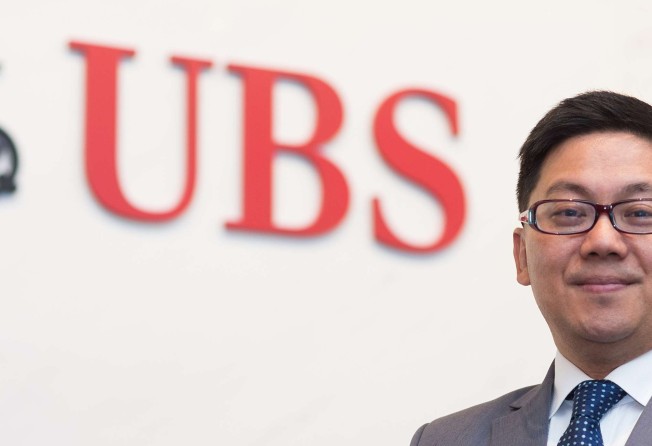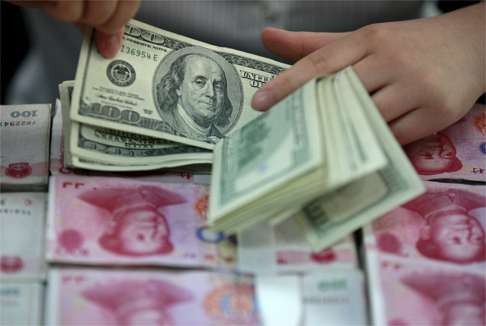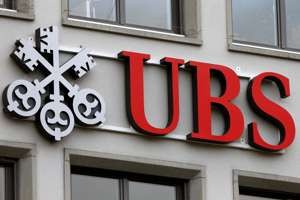Offering alternatives to China’s growing army of investors
UBS Securities’ Eugene Qian says firm plans to double its headcount in China over the next five years, with the majority of new jobs being offered in wealth management

Eleven years after it first set foot in China, Swiss investment bank UBS has become a leader in what has become one of the world’s biggest capital markets, despite its tricky access and tightening rules.
Eugene Qian, the company’s China country head and president, says in that time it has benefited particularly from its joint venture shareholding structure, set up in 2005 and approved by Wang Qishan, China’s current anti-corruption tsar and then Beijing’s municipal governor.
“Under a pilot programme, UBS was allowed to restructure the-then insolvent Beijing Securities, assume management control of the business, and rename it UBS Securities,” he said.
The arrangement allowed UBS to successfully avoid having any mainland securities company as a partner, and the need to have joint venture representatives on its board – often a tricky balancing act, that many newcomers to the sector in China have to face.
It was also able to integrate the mainland business with its wholly owned regional hub in Hong Kong.
Few foreign investment banks have achieved significant success in the Chinese mainland, since China opened its doors after 2005.
Overseas firms have to set up joint ventures with a Chinese peer, in which they can hold no more than 49 per cent, and many have blamed their struggle for control for their poor performances.
At a time when many investment banks are tightening their belts worldwide, to muddle through the turbulence caused by Brexit, Qian said his company is actually eyeing “significant growth” and expansion, including in its workforce, in China over the next four to five years, “given the enormous growth potential in wealth and asset management business in this market”.
“Some of the biggest business opportunities in China lie in onshore private banking – the demand from high-net-worth individuals and ultra high-net-worth individuals to diversify their assets has not been met,” Qian said, noting the available pool of money in the sector is worth trillions of US dollars.
“Many of the ultra high-net-worth individuals in China are first-generation entrepreneurs.
“They are very hands-on company managers, whose personal wealth still largely remains in the onshore market, typically via stakes in A-share listed companies.”
Moving their money outside the country has become tougher, as the authorities continue to tighten checks on cross-border fund flows, to curb capital outflow.
Qian said UBS is well-positioned to help entrepreneurs cash out parts of their wealth from company shares, and transfer those funds into onshore investment products, including bonds, private equity funds and property or offshore investment programmes that are open only to institutions.
“After last summers’ stock market rout, more and more people have come to the conclusion that it is unreasonable to put all your eggs in one basket,” he added.
UBS’ investment banking business also offers its private banking clients investment access to competitive assets, he said.
Only a small proportion of China’s rich, however, are still believed to have transferred their wealth overseas, with going public on the US stock market, the most popular option.
However, being the “world’s factory” for the last few decades, China has many manufacturing entrepreneurs who still find it hard to transfer their physical assets outside the country, Qian said.

“And this is making the onshore wealth market grow further, ” Qian said.
Statistics from the People’s Bank of China (PBOC) show domestic savings of Chinese citizens surpassed 40 trillion yuan by late 2013, and that number has been rising as the central bank continues to pump fresh liquidity into the economy to boost investment and economic growth.
According to Hurun, a wealth research firm founded in 1999 by the British accountant Rupert Hoogewerf, China had 17,000 ultra high-net-worth individuals in 2015, with average personal assets worth 1.82 billion yuan.
However, all Chinese have a personal foreign currency swap cap that allows them to change at most the equivalent US$50,000 annually.
Beijing launched the qualified domestic institutional investor (QDII) programme a decade ago that allows individual investors access to overseas markets through certain fund management institutions and banks.
A number of companies formerly listed in the US have or are preparing to relist on the A-share market to take advantage of higher valuations offered by the domestic market. And this is making the onshore wealth market grow further
But the quota has been frozen at US$90 billion since March 2015, as the authorities battle against outflows, mainly being fuelled by further depreciation of the yuan.
Beijing has been delaying the introduction of QDII 2, an upgraded QDII programme that offers direct overseas investment by individuals, a programme it proposed in 2013 as a commitment to opening the capital account.
Qian noted, as China’s economic growth slows to the lowest pace in 25 years, and its frothy property market shows further signs of risk, that more people are turning to other investments, and are looking for more professional management of their wealth.
UBS plans to double its headcount in China over the next five years, with the majority in its wealth management team, which currently has 600 staff.
Acknowledging the efforts of the China Securities Regulatory Commission, the nation’s top securities regulator, to step up its scrutiny of fund raising activities on the market after last summer’s stock market crash, Qian noted investment banks should create a more diversified range of products, to offset, for instance, the stagnant IPO market in the mainland.

Since late April, the CSRC has also shifted its attention on to merger and acquisition (M&A) applications by listed companies, particularly reverse mergers – so-called “back-door listings” – made by companies delisted from the US and looking to relist on the A-share market in an attempt to prevent cross-border arbitrage.
Qian said the impact of the recent regulations has been “limited” on UBS.
“Investment banks like us, think in advance,” he added.
In 2013, the bank helped the-then Nasdaq-listed Focus Media go private, restructured it through an M&A, making it a bigger entity with a more attractive growth outlook, and finally relisted it on the A-share market, via a reverse takeover in 2015.
“UBS brings innovation and thoughtfulness to corporate finance,” he said.
“Between a quality company’s delisting and relisting, we advise our clients to pursue a growth strategy to enhance its equity story, before seeking any return to the capital market.”
Its reverse takeover deal valued Focus at 45.7 billion yuan, nearly twice the US$3.7 billion the company was valued at when it was taken private by founder Jason Jiang and a group of investors including a private-equity firm.
Between a quality company’s delisting and relisting, we advise our clients to pursue a growth strategy to enhance its equity story, before seeking any return to the capital market.
“There was little point in relisting the same business solely to benefit from the higher valuation multiples at home in China,” Qian said.
“In terms of financing, the market is becoming more diversified and the importance of IPOs have been diluted by other structures in the A-share market,” he added, noting UBS has been beefing up its bond business on both on and offshore.
“As expectations for a US interest rate hike taper, we are helping more Chinese companies issue US dollar-denominated bonds,” he said.
According to Dealogic, UBS completed 19 US dollar-denominated bond deals for Chinese issuers in the first half year, a 35.7 per cent rise year on year. Total deal value for the market also improved.
The bank has been putting more emphasis on its M&A advisory business, too, and ranked top in China in terms of deal value in the first quarter of 2016.
Last year UBS Securities took the biggest market share (8.94 per cent) as a book runner for A-share IPOs, ranked by proceeds.
And for general equity offerings for Chinese companies, both domestic and overseas, UBS ranked as the second biggest book runner after mainland based Citic Securities in terms of deal value.
The joint venture securities companies under Goldman Sachs and Morgan Stanley ranked fourth and sixth respectively.
“UBS Securities in mainland China operates under a model which is fully aligned with the UBS Group,” Qian said.
“It also has access to UBS’s global resources and network. This is our core competitive advantage.
“There is no doubt China is one of the most important markets for UBS globally.”
